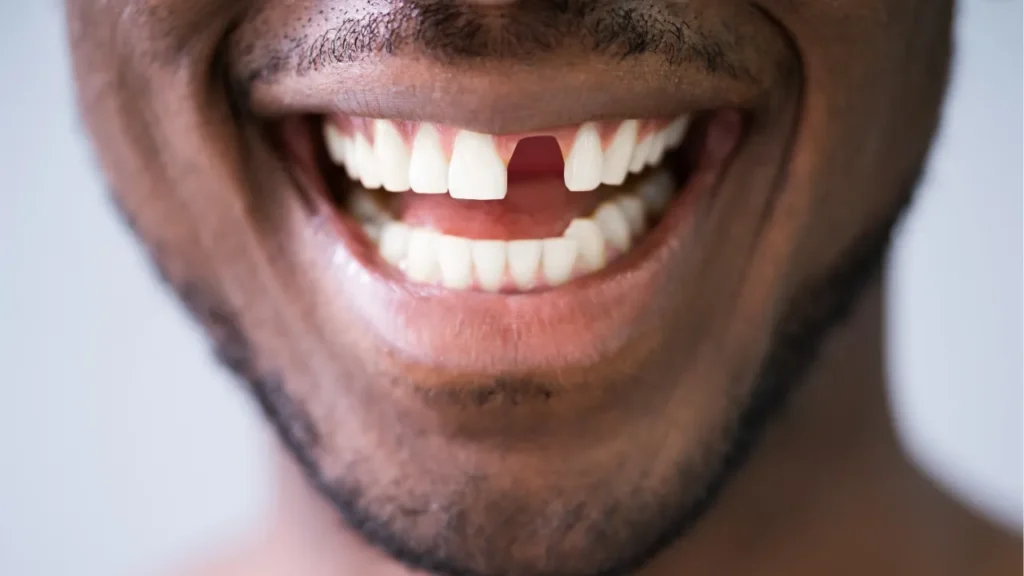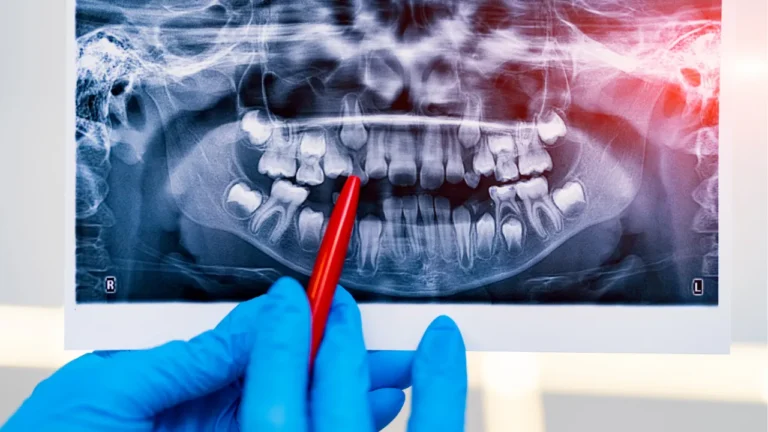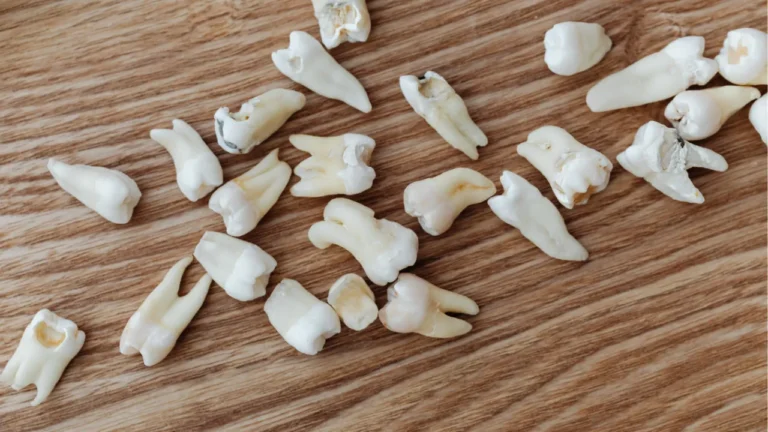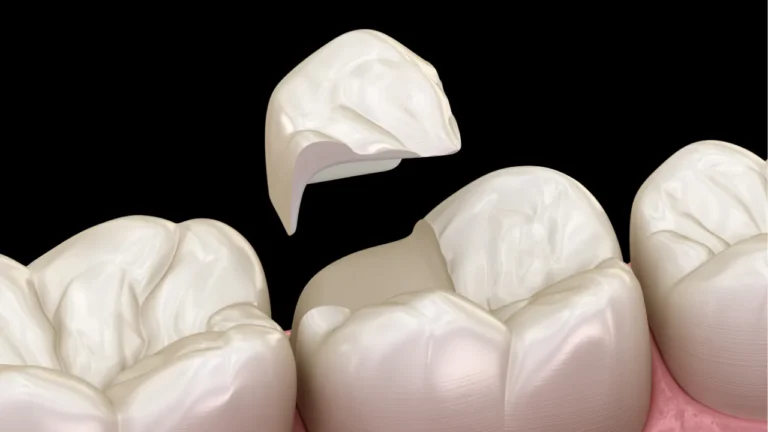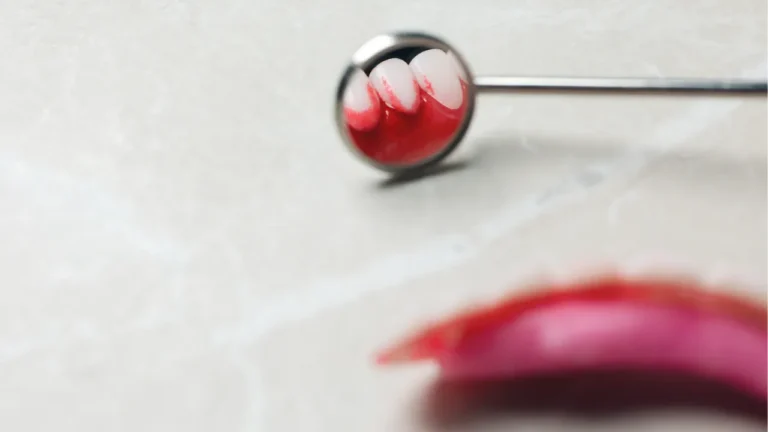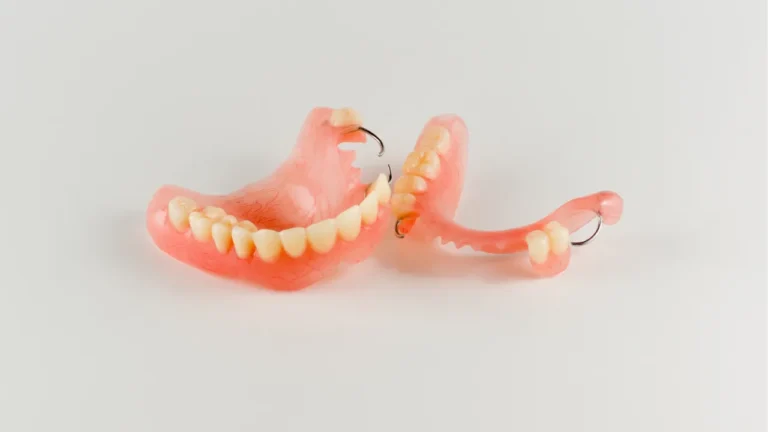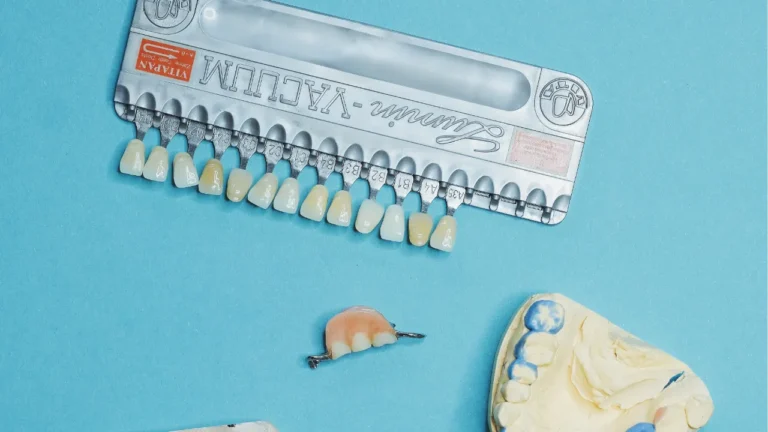Replacing missing teeth helps preserve your jawbone, maintain proper bite alignment, prevent surrounding teeth from shifting, and restore your ability to speak and chew comfortably.
When left untreated, missing teeth can lead to bone loss, facial sagging, digestive issues, and reduced self-confidence.
Fortunately, options like dental implants, bridges, and dentures can restore both function and aesthetics — helping you protect your health and smile with confidence.
Quick Summary
- Missing teeth can cause shifting, bite problems, and jawbone loss
- Gaps increase the risk of cavities and gum disease
- Tooth loss can make chewing and speaking more difficult
- Self-confidence often decreases when teeth are missing
- Dental implants, bridges, and dentures are effective replacement options
Why Is It Important to Replace Missing Teeth?
Many people assume that missing a tooth—especially one that’s not visible—won’t cause any harm.
However, gaps in your smile can lead to several oral health issues, including:
1. Shifting Teeth and Bite Problems
When a tooth is lost, the surrounding teeth can begin to shift into the empty space, leading to misalignment and bite issues.
This can cause uneven wear on your teeth and may even lead to jaw pain or temporomandibular joint (TMJ) disorders.
2. Bone Loss in the Jaw
Teeth play a crucial role in stimulating the jawbone. When a tooth is missing, the bone in that area begins to deteriorate, leading to a sunken facial appearance and weakening the structure of surrounding teeth.
3. Increased Risk of Cavities and Gum Disease
Gaps left by missing teeth can make it easier for plaque and bacteria to accumulate, increasing the risk of cavities and gum disease in the surrounding teeth.
4. Difficulty Chewing and Speaking
Missing teeth can make it harder to chew certain foods, which can lead to digestive problems if you’re not eating a balanced diet.
Additionally, missing teeth—especially front teeth—can affect your speech and pronunciation.
5. Reduced Confidence and Self-Esteem
Your smile is one of the first things people notice about you. Missing teeth can make you feel self-conscious, affecting your social life and overall confidence.
Options for Replacing Missing Teeth
Modern dentistry offers several effective solutions for replacing missing teeth, restoring both function and aesthetics.
Here are the most common options:
1. Dental Implants
Best for: Single or multiple missing teeth
A dental implant is a permanent and natural-looking tooth replacement option. It consists of a titanium post that is surgically placed into the jawbone, acting as a replacement root. A crown is then placed on top to match your natural teeth.
Benefits:
- Prevents bone loss by stimulating the jawbone
- Provides a long-lasting, durable solution
- Looks and feels like a natural tooth
- Doesn’t affect adjacent teeth
Considerations:
- Requires sufficient jawbone density
- Involves surgery and a healing period of several months
- Higher initial cost, but long-term benefits make it a great investment
2. Dental Bridges
Best for: Replacing one or more adjacent missing teeth
A dental bridge consists of one or more artificial teeth anchored to neighboring teeth with dental crowns. It fills the gap left by missing teeth and restores function.
Benefits:
- Provides a fixed, non-removable solution
- Restores chewing ability and prevents shifting of teeth
- More affordable than implants
Considerations:
- Requires reshaping of adjacent teeth
- Does not prevent bone loss in the jaw
3. Partial Dentures
Best for: Multiple missing teeth in different areas of the mouth
A partial denture is a removable appliance with artificial teeth attached to a gum-colored base. It clips onto remaining teeth for support.
Benefits:
- Affordable and non-invasive
- Can replace multiple missing teeth at once
- Easy to repair or adjust if needed
Considerations:
- Less stable than implants or bridges
- Can feel bulky or uncomfortable at first
- Needs to be removed and cleaned daily
4. Full Dentures
Best for: Patients missing all teeth in one or both arches
Full dentures are custom-made to replace an entire row of missing teeth. They rest on the gums and are typically held in place with adhesive or suction.
Benefits:
- Restores full function and appearance
- More affordable than implants for full-mouth restoration
- Custom-made for a comfortable fit
Considerations:
- Can take time to adjust to wearing them
- May require periodic adjustments or replacements
- Does not prevent jawbone loss
Choosing the Right Tooth Replacement Option
The best tooth replacement option depends on factors like:
- The number of missing teeth
- The health of your jawbone and gums
- Your budget and lifestyle preferences
At Every Smile Dentistry, we offer personalized consultations to help you choose the right solution based on your needs and goals.
Final Thoughts
Replacing missing teeth isn’t just about aesthetics—it’s essential for maintaining your oral health, jawbone strength, and overall well-being.
Whether you opt for dental implants, bridges, or dentures, restoring your smile can improve your confidence, chewing ability, and long-term dental health.
If you’re missing a tooth and want to explore your options, contact Every Smile Dentistry today to schedule a consultation.
Our team is here to help you regain your smile and confidence!

